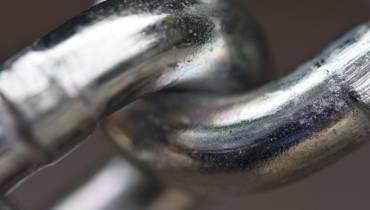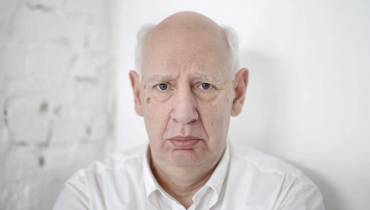How Donald Trump Influenced the American Dream
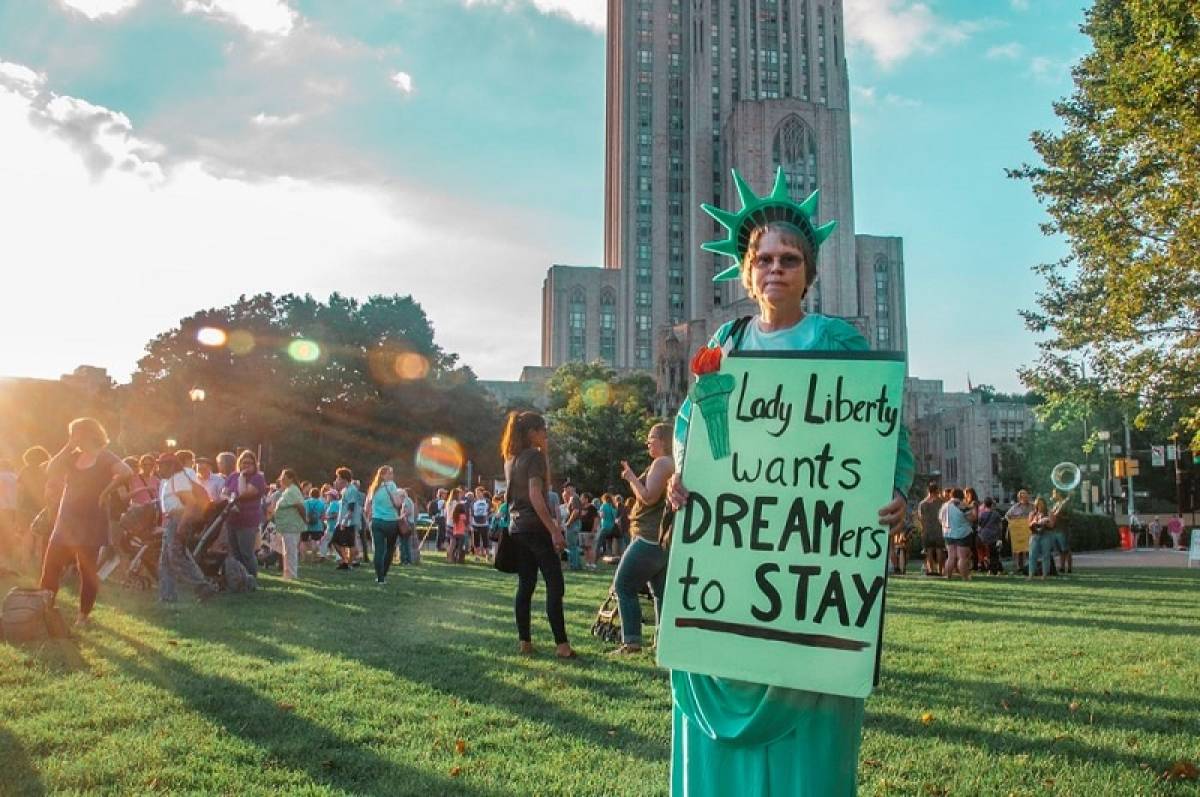
Securing victory in the November 2016 US election, Donald John Trump became the 45th president of the United States of America.
Ever since taking office on 20th January, 2017, the Republican leader has caused quite the stir with both his domestic policies through his approach to international relations with the wider world.
But how has he impacted the core American ideals and cultural beliefs, such as the historically divisive American Dream, and to what extent has this permeated into the lives of civilians?
The American Dream — self-made and successful
The American Dream is a term which dates back to 1931 when historian James Truslow Adams defined it for the first time in his book Epic of America.
One of the most famous quotes derived from it is as follows:
“The American Dream is that dream of a land in which life should be better and richer and fuller for everyone, with opportunity for each according to ability or achievement.”
That sums up the ethos in its original form, as a plight for earned success under which Americans receive their potential and enjoy happiness. The American Dream is essentially the belief that anyone, regardless of where they were born or what class they were born into, can attain their own version of success in a society where upward mobility is possible for everyone.
However, the concept has been deconstructed by many social and ethnic groups, and it has become a point of disparity and injustice over the course of history.
There have also been a string of dramatizations of the concept embodied in television and cinema, with examples such as “The Pursuit of Happiness,” “Forrest Gump”, “The Great Gatsby,” and “The Social Network” all providing different representations of the notion and its values.
Its premise, however, is supposed to govern an all-American mentality, and we’re going to take a look at how Donald Trump’s presidency has affected this so far, focusing mainly on the ideas of self-made success.
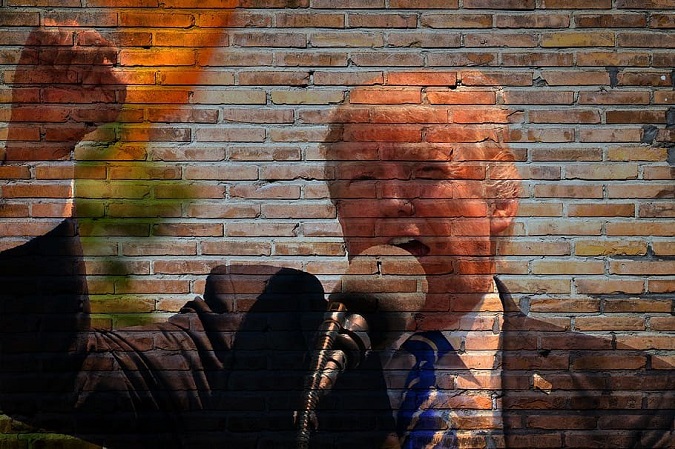
Can Trump truly advocate the American Dream?
The American Dream essentially hinges on a rags to riches kind of story — a started at the bottom and built it up philosophy. That said, is this something Trump could technically promote?
Born in Queens, New York, it wouldn’t be unfair to suggest tha Donald had a considerably easier path to success, than shall we say, his predecessor and perhaps his biggest targeted enemy, Barack Obama.
The republican president didn’t spend his childhood on the streets — quite the opposite. He was born into a rather wealthy family. He was sent to private boarding school, before attending military academy, and later university in Philadelphia.
During his time at university he began working for the family real-estate business, which managed middle-class properties in Brooklyn and Queens. Some would be quick to suggest, “but he took the family business and transformed it into something spectacular”, which yes, he did but, can that really be considered a prime example of the so-called ‘American Dream’?
When he first entered the Forbes Rich List back in 1982 with a net worth of a more than meek $200 million, he was aged only 36 — impressive by any measurement. Although, one must remember, the springboard was already in place and it was two generations ahead of Donald. It wasn’t about employing carpe diem, this was simply a case of taking what you’re given and bettering it.
Now, of course, this wholly depends on how you perceive this concept of dreaming and I don’t believe that Trump fits within the mould.
Rising inequality in business and general life
Footfall in American malls has declined significantly over 2019, with 8,600 stores being forecast to close. Around 66 per cent of Americans hope to open their own small business.
The main reasons holding people back are financial security and fear of failure at 45 per cent and 37 per cent, respectively.
In an attempt to stimulate economic growth, the Trump administration altered the tax landscape in America by cutting taxes for corporations and small businesses, which further enriched the wealthiest while not helping the average person.
Recent research by Raj Chetty has found that if you were born in 1940, you had a 90% chance of doing better than your parents; if you were born in 1984, that chance dropped to 50%.
The American dream seems to be under siege. And Tramp’s tax relief for the rich to middle classes highlights the rising financial inequality contrary to what the American Dream tries to dispel.
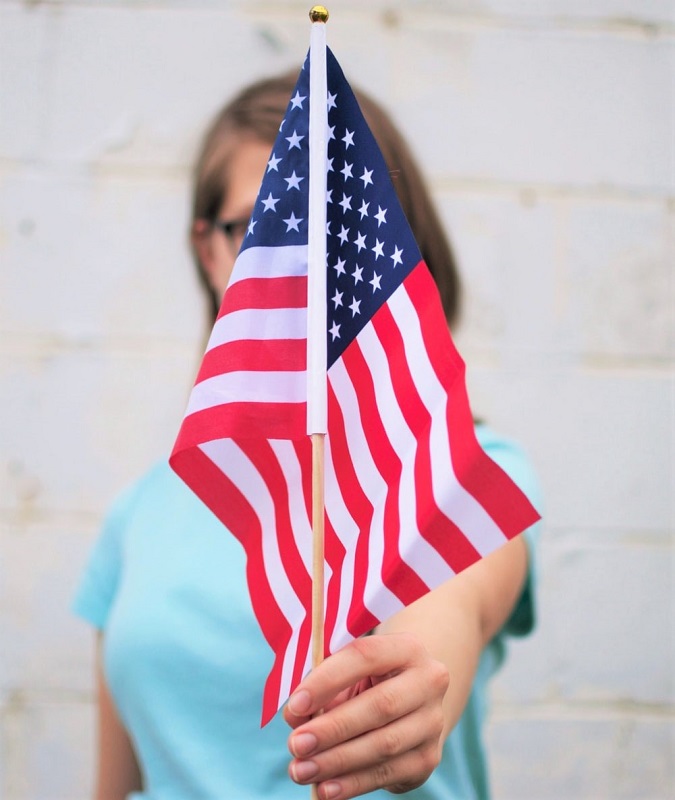
Perceptions of success and prosperity
Remember that classic quote, “Dress for the job you want, not the job you have?” It would appear that American fashion choices reflects business aspirations to a certain extent and is also used to influence perceptions of success in the pursuit of the American Dream.
Sales data from British multi-channel men's clothing retailerCharles Tyrwhitt Shirts illustrates that, in general, American customers have a much more formal style when compared to their UK counterparts. The highest spend over the last year for formal shirts was plain. Solid colors were the front runner — is it a coincidence that Trump ;is only seen in plain shirts?
The Washington Post claimed that they have sifted through archives and cannot find more than a few images of Trump in jeans over the last 20 years. According to the Post, “Trump doesn’t often do business casual, and when he does, his go-to choice is khakis (always topped with a navy blazer), but never, ever jeans.
“Such jeans rejection puts Trump out of step with the average American,” the Post notes. “Statistics are hard to come by, but some data suggests that 96 percent of Americans wear them.
The image Trump seems to be interested in projecting is that of ‘success’ and “prosperity” in his choice of formal wear, and it seems American men eager to be seen as living the American Dream are certainly also opting to present themselves as smart ;in the office.
Casual shirts sold the most in check pattern, a much less conventional style that gives you an eye-catching look in light of the American Dream. Are a more diverse range of people being influenced by the notion of the American Dream and prosperity?
Pink shirts were among the highest spend for both New York and California, with research finding that pink shirts have connotations of being qualified, having more confidence, and earning more money — both locations having some of America’s wealthiest areas.
Unsurprisingly, white shirts remained high across both locations, a classic, timeless choice for many sectors, helping those access a successful appearance with a staple garment of clothing. Long sleeves outsold short sleeves in both cities, an undeniably professional look.
Even though California experiences high temperatures, short sleeves were bought less by customers who opted for more sophisticated choices of clothing. Slim fit formal shirts were also the most popular, giving the illusion of a tailored fit.
So then, if the American Dream was originally attributed to loving and enjoying life thanks to what one had earnestly worked for and achieved, it doesn’t seem unfair to say that although Donald may present the look of a successful business man and want people to believe that he's the epitome of living the American Dream, he did not actually earn everything he’s got from scratch.
Is the American Dream still about hard work, rather than chance?
Yes, Trump may have rolled up his sleeves to build his empire and he may have worked his way through life as a businessman, but it’s also true tha he had an advantage that many Americans don’t always have at the start of their lives.
Starting off as a young businessman, Donald Trump had that little push—an established family business, which offered him a little step onto the ladder from which he then built his empire.
Looking at the American population, a huge percentage of Americans lack exactly that starting point, which would give them access to the American Dream advocated by their president.
Donald Trump’s story and his policies as president of the United States of America have somehow altered the original idea of the American Dream, suggesting that some groups are put into a privileged position and have more chances to living the American Dream.
Is it any wonder that the Donald isn’t enthusiastic or keen to see immigrants entering the so-called “land of the free” to pursue the American Dream, where success is supposedly meant to be achieved through hard work, sacrifice, and risk-taking, rather than by chance?
Some Americans may believe the dream is available to some but not to others.

















